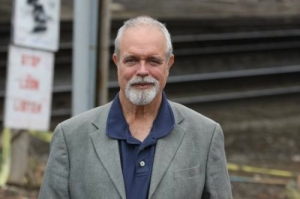In the past three days, I have visited Raleigh and met with some amazing poets and writers. Names can be thrown around (Dorianne Laux, Joseph Millar, Wilton Barnhardt), and yet the poetry of the future is so strong with young poets who are hoping to make a name with their lives and live on into the future and then allow their poems to live in their stead long after they have been wandered into death, or as Francois Rabelois would call “The Great Perhaps”. I have been seeking a future in Raleigh in the MFA program at NC State University with many of the artists and writers that live in the Carolina Triangle of Durham, Chapel Hill, and Raleigh. Yet, I can stop thinking about what the future may hold and how poetry allows us to grasp on to it.
Here is a poem from the great Rainer Maria Rilke, who is one of my biggest inspirations and pair of eyes into the Great Perhaps of the future and beyond:
The Future
by Rainer Maria Rilke
The future: time’s excuse
to frighten us; too vast
a project, too large a morsel
for the heart’s mouth.
Future, who won’t wait for you?
Everyone is going there.
It suffices you to deepen
the absence that we are.
Yes, the future can be frightening. Yes it is too vast of an idea to even fathom at times and much too large to take a bite out of in moments of great ponderment and wonder; however, poetry can help us to grasp on to it, to take it by the horns and ride it, however ungracefully, into the next moment. Who won’t wait for the hope of a greater future? Everyone is going to end up there in one way or another. I believe that poetry gives us a link to our present moment, the glory of being, or to simply be “am”, and to remember that we will always be fulfilled into the shape that the future contains us as.
My ex-girlfriend once gave me the single most important advice that I have ever heard. She said, “Things will work out because they have no choice but to work out, even if it is not the way we expect it to.” This quip of poetic wisdom is something I cherish even though our has now faded into an absence of presence or a detachment due to conflict of interest. But her advice is sound and brutally honest.
Elizabeth Bishop, in her “Sonnet 42” speaks of this fact with clarity that I wish to exemplify:
I seek no copy now of life’s first half:
Leave here the pages with long musing curled,
And write me new my future’s epigraph,
New angel mine, unhoped for in the world!
These final four lines, in my own personal worldview, speak to reveal that we should not waste our time in wanting the past. It is over with. It cannot be retrieved physically, and only in memory. I wish to write my new future’s epigraph, wasting no time in developing my talent and relaying truth in poetry that only poetry can reveal. I do no hope for anyone thing, and yet “I am full of multitudes” (Walt Whitman). I do contain hope but I do not try to leave all my flags open to the wind in order to be blown asunder. I can only remember that what I leave behind, after I too leave for a Great Perhaps, is what others will follow into the future. I can only leave parts of myself for the world to hold. I cannot take that which I love with me. Only this moment can I contain those things. The future, that vast and unetched monolith, must be written upon by me. The future is not promised, only created.


